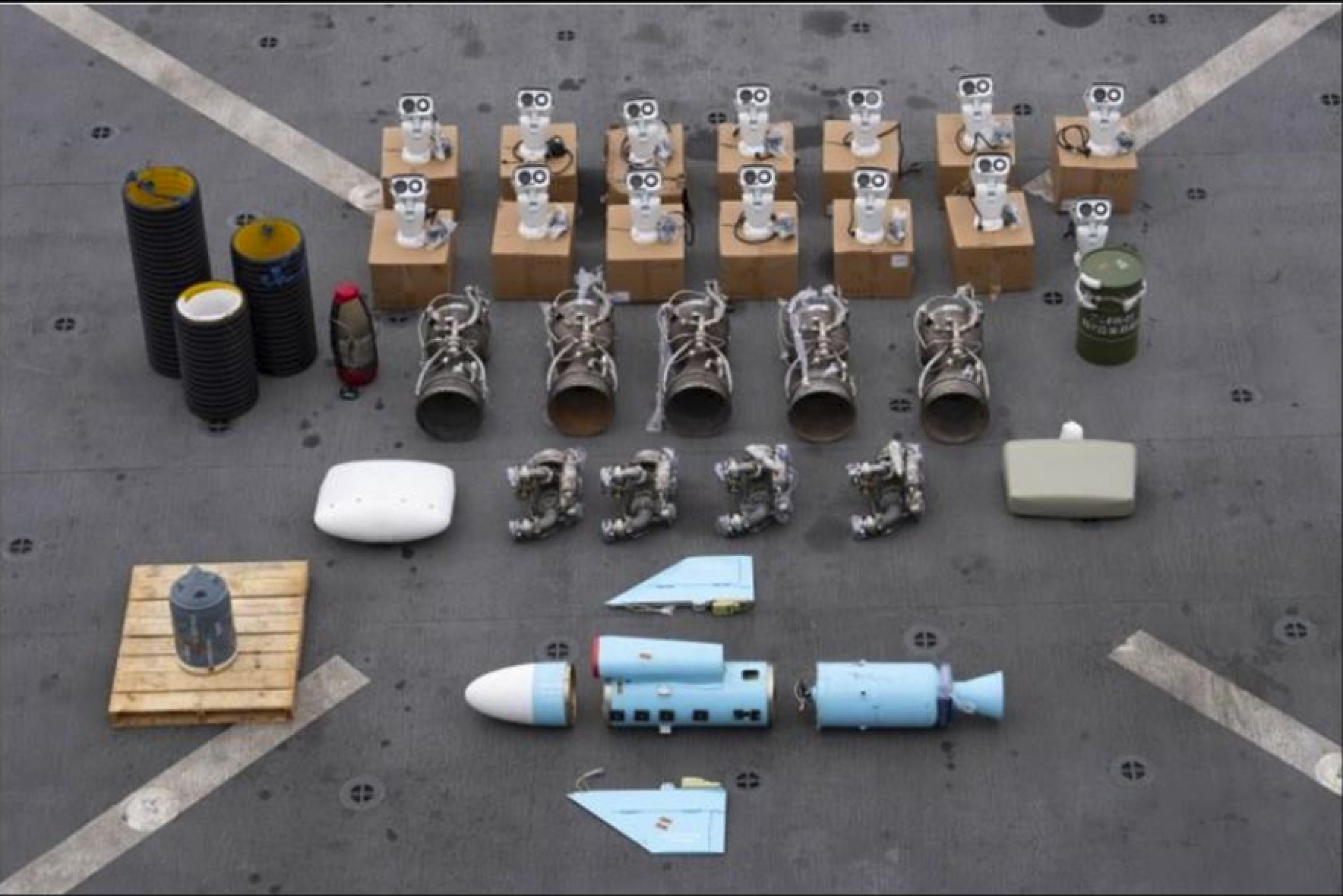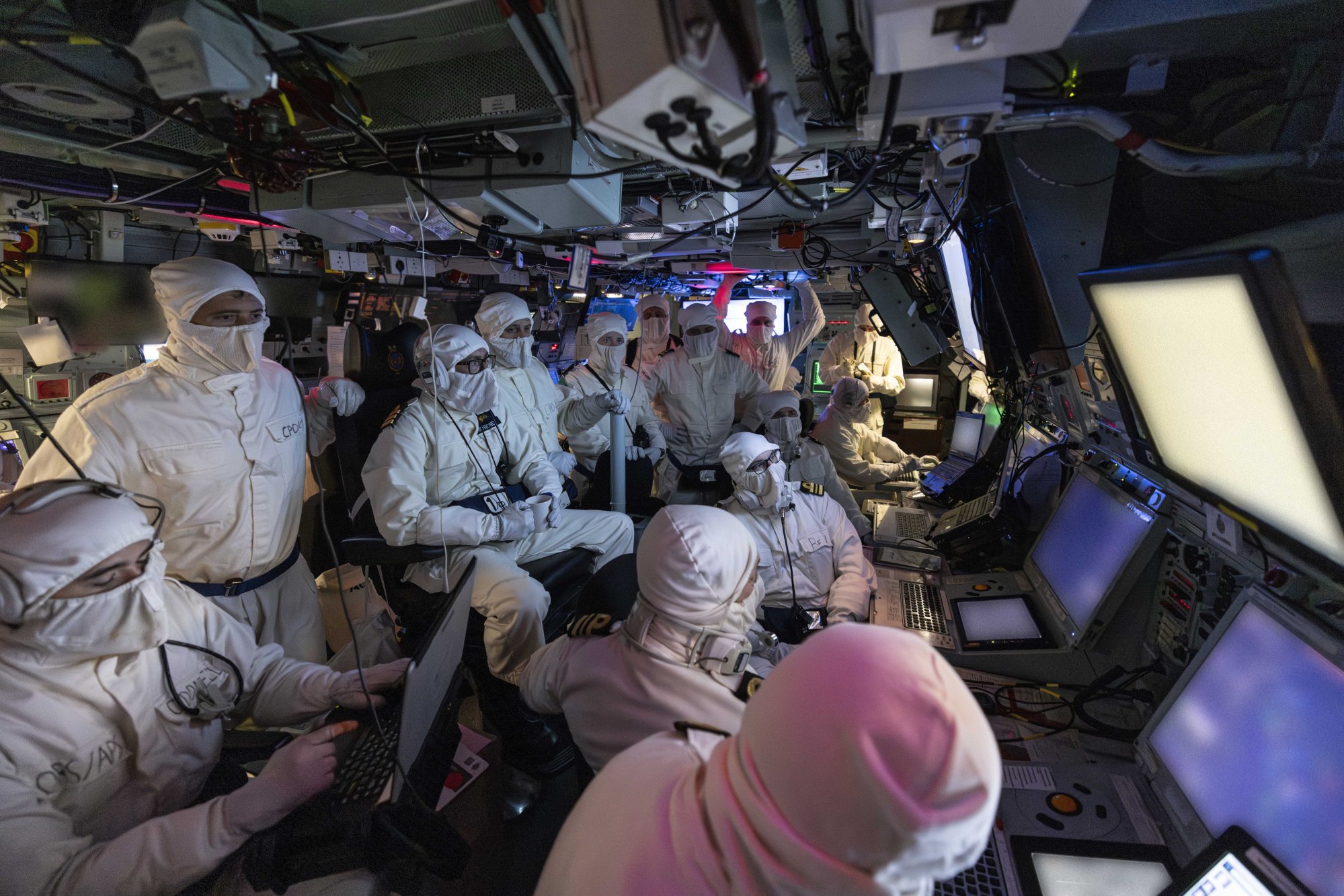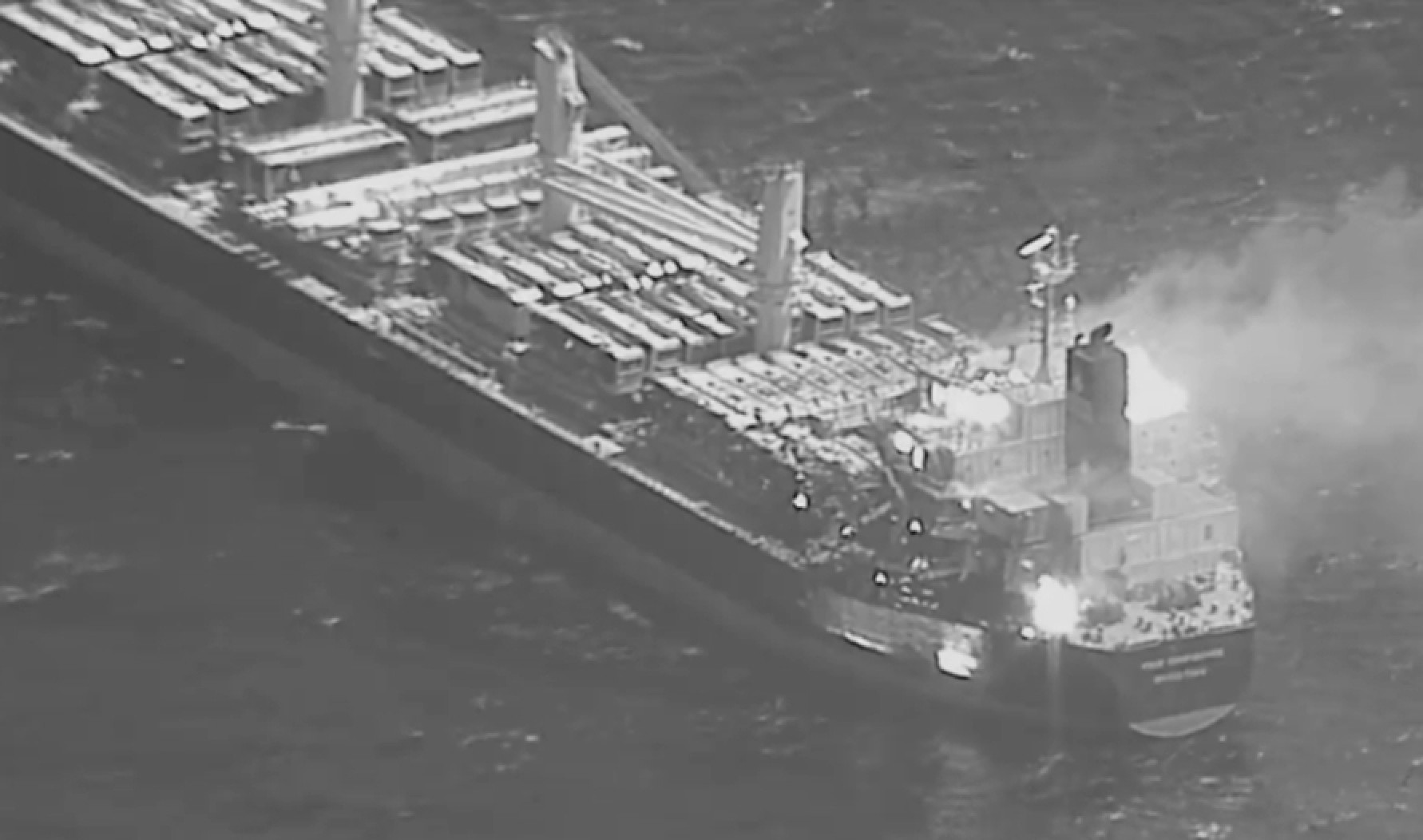
Red Sea attacks: Yemen’s Houthis reported to have a hypersonic missile
- Russian media report says Iran-backed Houthis have successfully tested a missile capable of Mach 8
- Houthis have attacked ships since November, saying they want to force Israel to end Gaza offensive
Yemen’s Houthi rebels claim to have a new, hypersonic missile in their arsenal, Russia’s state media reported, potentially raising the stakes in their attacks on shipping in the Red Sea and surrounding waterways against the backdrop of Israel’s war with Hamas in the Gaza Strip.
Thursday’s report by the state-run RIA Novosti news agency cited an unidentified official but provided no evidence for the claim. It comes as Moscow maintains an aggressively counter-Western foreign policy amid its grinding war on Ukraine.
However, the Houthis have for weeks hinted about “surprises” they plan for the battles at sea to counter the United States and its allies, which have so far been able to down any missile or bomb-carrying drone that comes near their warships in Middle East waters.
On Thursday, Abdul Malik al-Houthi, the Houthis’ secretive supreme leader, said the rebels will start hitting ships heading toward the Cape of Good Hope in Africa’s southern tip.

Until now, the rebels have largely struck ships heading into the Red Sea toward the Suez Canal, and such an escalation would target the longer, alternative route used by some vessels. It remains unclear how they would carry any possible assault out.
Iran, the Houthis’ main benefactor, claims to have a hypersonic missile and has widely armed the rebels with the missiles they now use. Adding a hypersonic missile to their arsenal could pose a more formidable challenge to the air defence systems employed by America and its allies, including Israel.
China, Russia and Iran hold military exercise as Red Sea attacks rise
“The group’s missile forces have successfully tested a missile that is capable of reaching speeds of up to Mach 8 and runs on solid fuel,” a military official close to the Houthis said, according to the RIA report. The Houthis “intend to begin manufacturing it for use during attacks in the Red Sea and the Gulf of Aden, as well as against targets in Israel”.
Mach 8 is eight times the speed of sound.
Hypersonic weapons, which fly at speeds higher than Mach 5, could pose crucial challenges to missile defence systems because of their speed and maneuverability.
Ballistic missiles fly on a trajectory in which anti-missile systems like the US-made Patriot can anticipate their path and intercept them. The more irregular the missile’s flight path, such as a hypersonic missile with the ability to change directions, the more difficult it becomes to intercept.
China is believed to be pursuing the weapons, as is America. Russia claims it has already used them.
In Yemen, Abdul Malik al-Houthi boasted that his fighters “continue to expand the effectiveness and scope of our operations to areas and locations the enemy never expects”. He said they would prevent ships “connected to the Israeli enemy even crossing the Indian Ocean … heading toward the Cape of Good Hope”.

The Houthis have attacked ships since November, saying they want to force Israel to end its offensive in Gaza, launched in response to Hamas’ October 7 attack on southern Israel.
The ships targeted by the Houthis, however, have increasingly had little or no connection to Israel, the US or other nations involved in the war. The rebels have also fired missiles toward Israel, though they have largely fallen short or been intercepted.
The Houthis don’t have a navy, nor weapons reaching into the far distances of the Indian Ocean, making their Cape of Good Hope threat difficult.
Red Sea data cables cut as Yemen’s Houthis hit ship with missile
However, Iran is suspected of targeting Israeli-linked vessels previously in the Indian Ocean. The Houthis have claimed attacks assessed to have been carried out by Iran in the past, such as the 2019 attack on Saudi Arabia that temporarily halved its oil production.
After seizing Yemen’s capital, Sanaa, in 2014, the Houthis ransacked government arsenals, which held Soviet-era Scud missiles and other arms.
As the Saudi-led coalition entered Yemen’s conflict on behalf of its exiled government in 2015, the Houthis’ arsenal was increasingly targeted. Soon – and despite Yemen having no indigenous missile manufacturing infrastructure – newer missiles made their way into rebel hands.
Iran long has denied arming the Houthis, likely because of a years-long United Nations arms embargo on the rebels. However, the US and its allies have seized multiple arms shipments bound for the rebels in Mideast waters.
Weapons experts as well have tied Houthi arms seized on the battlefield back to Iran.
Iran also now claims to have a hypersonic weapon. In June, Iran unveiled its Fattah, or “Conqueror” in Farsi, missile, which it described as being a hypersonic. It described another as being in development.
Iran’s mission to the UN did not respond to a request for comment Thursday. Asked about the hypersonic claim, Pentagon spokesperson Sabrina Singh said: “We have no indication that they even have that capability”.
Israel’s military declined to comment.
The assaults on shipping have raised the profile of the Houthis, whose Zaydi people ruled a 1,000-year kingdom in Yemen up until 1962. Adding a new weapon increases that cachet and puts more pressure on Israel after a ceasefire deal failed to take hold in Gaza before the Muslim holy month of Ramadan.

Other recent Houthi actions include an attack last month on a cargo ship carrying fertiliser, the Rubymar, which later sank after drifting for several days.
Fabian Hinz, a missile expert and research fellow at the International Institute for Strategic Studies, said he wouldn’t be surprised if Iran transferred a new, hypersonic weapon to the Houthis.
However, the question is how manoeuvrable such a weapon would be at hypersonic speeds and whether it could hit moving targets, like ships in the Red Sea.
“I wouldn’t exclude the possibility that the Houthis have some system that has some manoeuvring capability to some extent,” Hinz said. “It is also possible for the Iranians to transfer new stuff for the Houthis to test it.”

